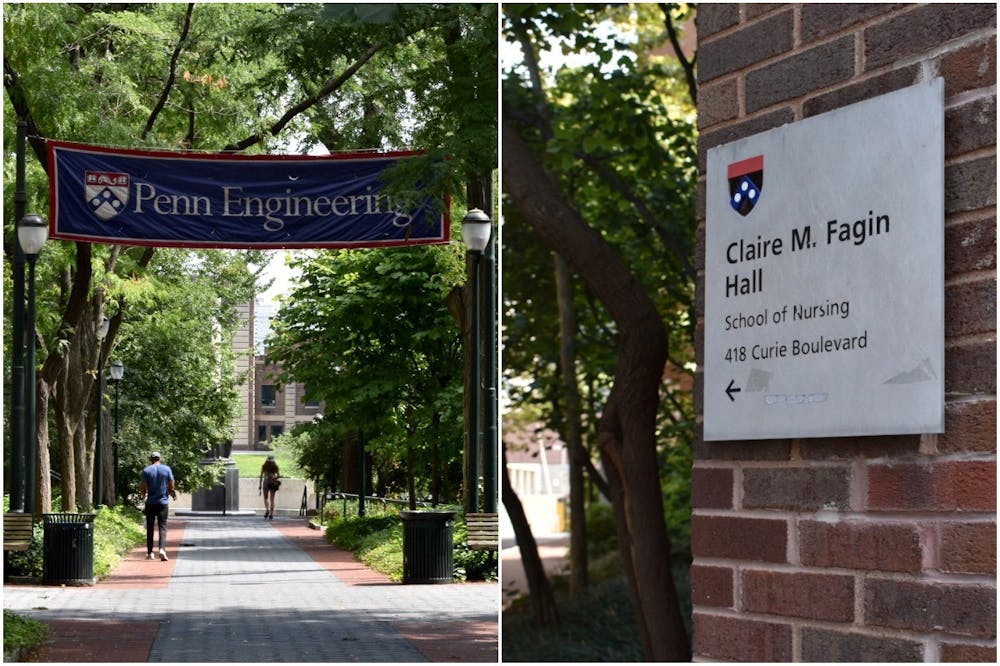The School of Engineering and Applied Science’s PRECISE Center and the School of Nursing formed a partnership with Hillrom, a medical device provider, to develop new technical solutions for health care challenges including critical care, diabetes, mental health, and cardiology.
The partnership, forged in August, will be a multi-year endeavor in which Penn and Hillrom researchers will collect data from hospital rooms and existing records in order to gain a complete and accurate image of the issues hospitals and patients face. With this data, the partnership aims to integrate new "smart" technology into the hospital room to address these issues. One of these devices, the smart bed, can continuously monitor patients and alert doctors when medical complications arise.
Insup Lee, Cecilia Fitler Moore Professor of Computer and Information Science in Engineering and PRECISE Center Director, said one of the healthcare issues the partnership studies is the rates of falling among hospitalized patients, especially elderly patients.
Studies have shown that this is a common problem in hospitals, with over 700,000 to 1 million patients falling in the hospital each year in the United States. Among elderly nursing home patients, more than half fall each year in the United States.
Although the partnership will study existing health records, George Demiris, a Penn Integrates Knowledge University Professor with a joint appointment in the Perelman School of Medicine, said there is still a need to collect new data. Much of the partnership's data will be collected from patients and hospital rooms, and Lee said the data collection process will not violate patient privacy.
“The data we collect from the electronic health record is very useful in allowing us to better understand fall rates,” Demiris said. “But as is the case with most data repositories, some data isn’t available, some data isn’t accurate, and they don’t describe what exactly has happened.”
Demiris said the partnership is still in its first phase and current projects include building a full team as well as creating data-collecting infrastructure.
The current Penn research team spans multiple departments, but it is not yet complete. Currently, four Ph.D. students from the PRECISE Center are involved. The School of Nursing will have a team of seven to eight pre-doctoral students and professors.
“In the second phase, we’re going to recruit volunteers to come into the lab and do a series of functional assessment tests, as well as use the Hillrom equipment,” Demiris said.
Therese S. Richmond, a Nursing professor and the Associate Dean for Research & Innovation adopting a supervisory role in the partnership, said that research has been hampered by COVID-19.
“Human subjects research that wasn’t COVID related all ramped down on campus," Richmond said. "So we’re just in the second phase of ramping up research on campus, especially research where we have to interact with human subjects.”
Lee confirmed the difficulty in performing in-person research. Most of the researchers, though they reside near campus, have to abide by COVID-19 restrictions.
“Ideally, we were initially planning that engineers would come to our campus, our lab, and then we would just work together, but that has shown to be difficult so we are currently just working online,” he said.
Demiris and his colleagues have had to do “a vast majority” of their work online, usually over Zoom. Demiris said there is a specialized site on campus, overseen by Lee, where Hillrom medical equipment is being physically tested.
Despite the recent start, Richmond says the partnership has been in the works for years. Meetings between Penn Nursing, Penn Engineering, and the Penn Center for Innovation, which was responsible for negotiating and overseeing the partnership, were facilitated by Mark Turco, the then-Chief Innovation and Corporate Outreach Officer for PCI.
Demiris said in the short term, the partnership will provide new approaches to improving the quality of care and safety for hospital patients.
“What will be the hospital room of the future? We recognize that there’s not only technical and engineering challenges that come with that, but also potential ethical, practical, and clinical implications," Demiris said.
Lee said the long term future of the partnership will depend on additional funding and manpower.
The researchers showed optimism for the partnership's future. Lee said this is a “new opportunity” as he had faced prior difficulty in creating academic-corporate partnerships in the medical field. Likewise, Demiris said was excited at the prospect of working with Hillrom.
“It’s an exciting opportunity,” he said. “Not only can you think outside the box and think of innovative solutions, but at the same time we’re thinking about something that’s applicable and translatable, something that’s not just meant for a research lab but something that will make an impact and improve people’s lives.”
“The University of Pennsylvania is Ben Franklin’s university, and he said we develop knowledge for the social good,” Richmond said. “I think this project exemplifies that.”









